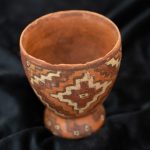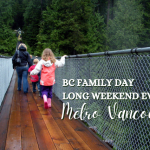EcoCamps for Spring Break in Stanley Park
Stanley Park Ecology Society’s education team has been busy organizing another lineup of fascinating and fun programs to immerse kids in the delights of nature! The Spring EcoCamps in Stanley Park will give youngsters (ages 7-11) a chance to uncover the mysteries of the natural world, learn valuable outdoor skills, and let their budding inner performers bloom.

Spring Break in Stanley Park
- Fees: Members $280, Non-members $300 (family membership with SPES is $40, find out more about becoming a member today)
- Schedule: Monday to Friday, 9:00am to 3:30pm
Due to the public health risk of COVID-19, SPES will be running the majority of the camp outdoors and be requiring that participants wear masks except for when eating and drinking.
March 14 to 18 – Stanley Park Survivor
This exciting camp will, through a series of games and challenges, help your children learn how to navigate in the wilderness, build a shelter and other skills to help keep them and the natural environment safe while on outdoor adventures. Register here.
March 21 to 25 – Fabulous Forest Theatrics
Does your child love nature and thrive on imaginative play? This camp, being offered for the first time ever, will foster your child’s creativity and talent as we guide them through the process of making an original piece of theatre inspired by the diverse animal and plants that make Stanley Park their home. Register here.
For more information about Stanley Park EcoCamps or the at home Critter Club, follow Stanley Park Ecology Society on Facebook and Instagram.
About SPES ~ Stanley Park Ecology Society promotes awareness of and respect for the natural world through collaborative leadership in environmental education, research, and conservation in Stanley Park. SPES gratefully acknowledges that the land on which they gather and help steward is the unceded and traditional territories of the xʷməθkwəy̓əm (Musqueam), Skwxwú7mesh (Squamish) Nation, and Səl̓ílwətaʔ/Selilwitulh (Tsleil-Waututh) Nation. Since time immemorial, Coast Salish peoples have lived reciprocally with the land, harvesting and cultivating foods and medicines and practicing ceremony. The abundance of these lands and waters, which enables us to live, work, and play here today, is a result of the past and on-going stewardship and advocacy of the Coast Salish peoples.
Related: Caring for Natural Spaces in Urban Places – Stanley Park Ecology Event Series










